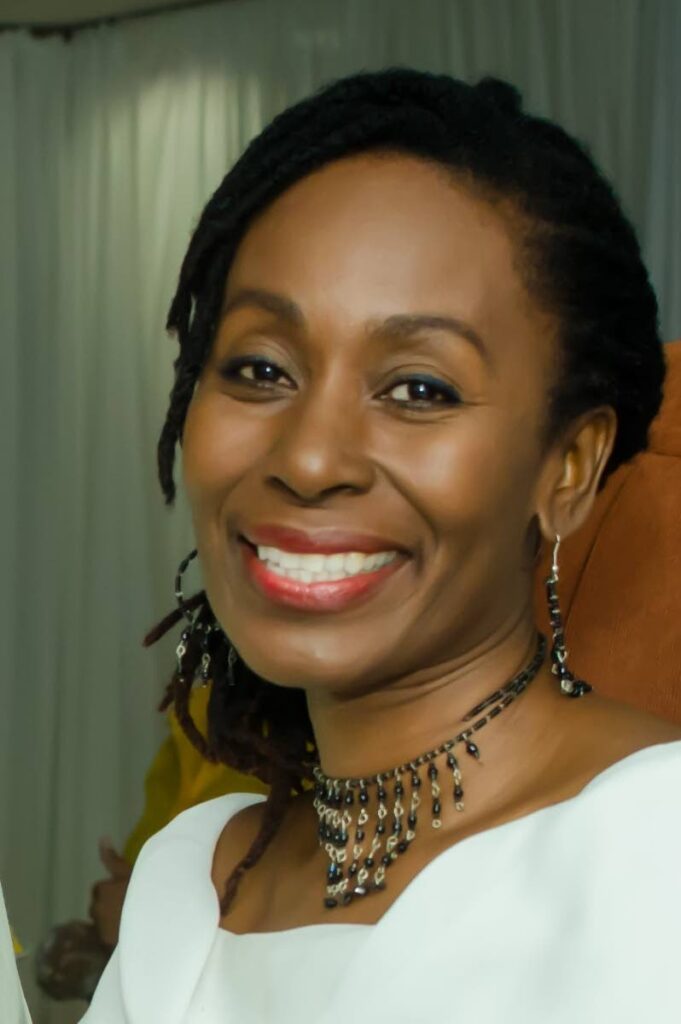When shadows walk

Dara E Healy
A FEW days ago, I looked at the photo of a school in Port of Spain that had to be dismissed early because of gunshots and felt an overwhelming sadness and frustration.
The school looked like one of those post-Armageddon structures from violent 80s movies. Dirty, no greenery, and blocks that looked like, well, cells.
I have had the privilege to engage with some of the young people from that school. I remember that they were respectful and eager to learn from me and my team.
I have always felt that the educational environment is critical to how young people perceive and receive information. In fact, I wrote about this a few weeks ago.
However, environment also influences behaviour. Worse, our culture of silence and turning a blind eye now has generational consequences, because it seems that the aggressors are getting younger and more vicious.
We need to intentionally create safe spaces for conversation and self-expression. The spirit of Jayden Lalchan has opened a flood of reports of children being regularly attacked.
This week I read about a special-needs child who was pushed and spat on, among other acts of cruelty. Young people who do not fit societal norms of gender identity are increasingly in peril, forced to live hidden and fearful.
In all of these cases, there is complicity from those in authority. Lack of will, religious doctrine, incompetence, desire to protect the reputation of their institution – all of these play a role in why young people continue to suffer alone.
Walks and candlelight vigils offer some comfort, but they only temporarily dispel the shadows. By themselves, they cannot fix a system that is broken.
I was hopeful, but did not really expect that money would be set aside for the arts to play a role in turning around the dysfunction in our schools and communities.
During the recent budget debate, Senator Helon Francis seemed to be in a state of disbelief as he delivered remarks on the allocation this year for culture and the arts. His expression and body language conveyed the sentiment: "I lorse." As he pointed out, the billion-dollar industry that is tourism relies to a large extent on visitors coming to experience what is unique to us – our culture.
Yet the paltry sums allocated do not reflect a desire to approach the creative sector with a sense of gravitas. We urgently need a strategic assessment of how the arts can contribute to a reduction in criminal activity and dysfunctional behaviour in our at-risk communities. How the arts can bring hope to the young people who increasingly are forced to live in the shadows.
The current model, in which topics are introduced to students because corporate or other sponsors are interested, is neither comprehensive nor sustainable.
Like other citizens, I would also like to have a better understanding of the allocation towards entertainment for the Prime Minister. Is it to ensure that artists can be adequately catered for as part of programmes that involve visiting dignitaries or business stakeholders? Or to guarantee that arts can form part of the solution for social programmes that fall under the purview of the office, such as gender-based violence?
We should know; rather, we should have an input into how and why such funds are allocated.
Still, those of us in the creative industry who wish to make an impact recognise that we must achieve our goals in spite of the lack of consistent attention to the sector.
This weekend, our organisation is opening up the conversation on menopause, through the arts.
As we reached out to women to share our plans, we discovered that there is much that is not understood about this natural phase of life. Menopause is another subject that is still only whispered about. Sadly, we have been told stories of women who were misdiagnosed, victimised at work or misunderstood at home as they struggled through the symptoms.
We would also like to encourage men to join the conversation with us this weekend. The men we speak to agree that they struggle to find safe spaces to talk or simply be. Significantly, they point out that this isolation and lack of communication start in school.
So we have come full circle. When shadows walk, dreams and aspirations become shrouded in uncertainty, negativity and silence. We must do all that we can to let in the light. We must.
Dara E Healy is a performing artist and founder of the Indigenous Creative Arts Network – ICAN

Comments
"When shadows walk"